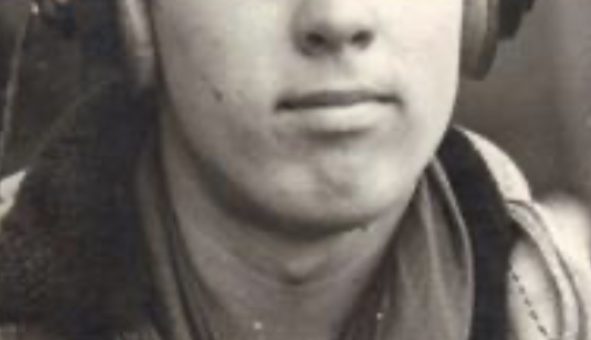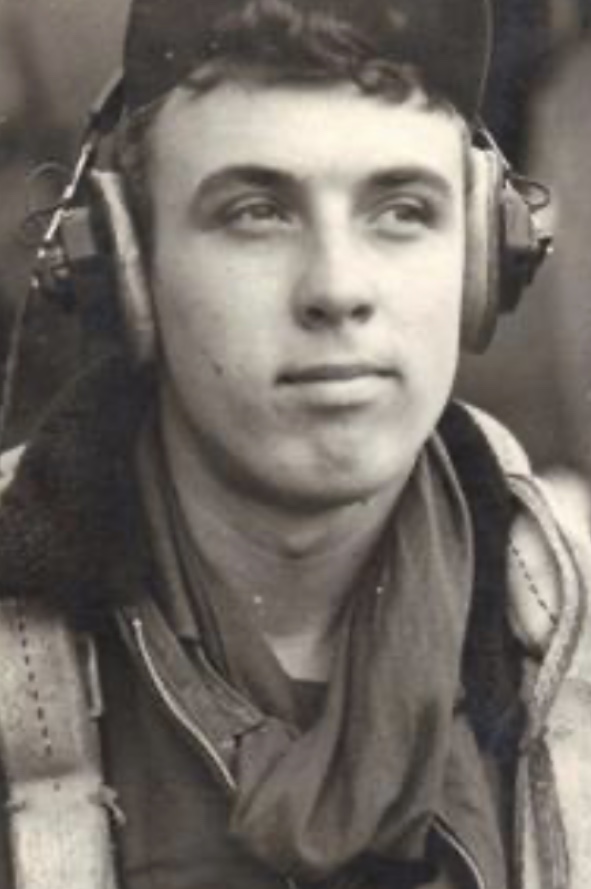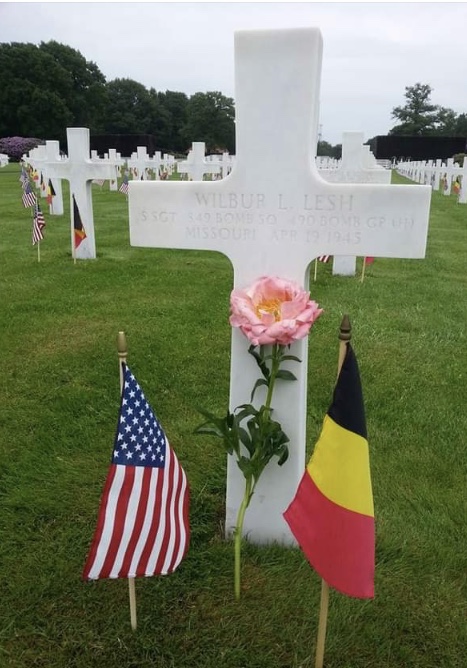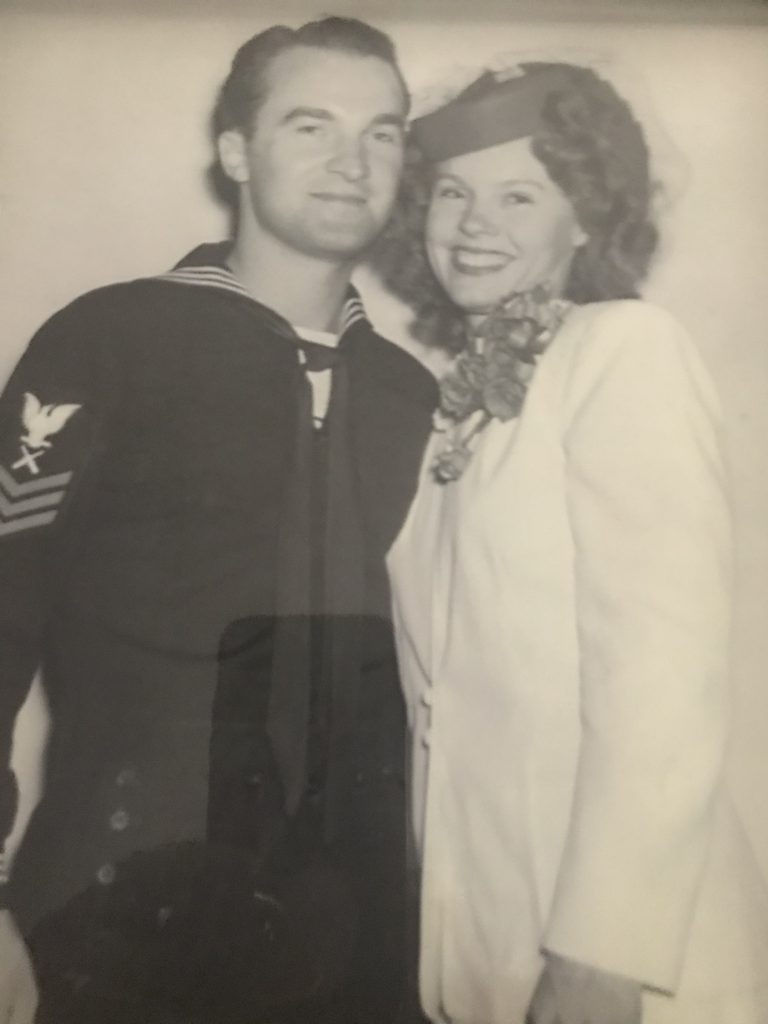
BEDFORD – Many high schoolers are finishing up their final year of high school and preparing themselves for the life that lies ahead of them. You could say, the skies are the limit for these youth.
The United States has endless opportunities for those who are willing to work hard and obtain their goals in education and occupation – whatever one’s heart desire.
But, for two Lawrence County men, instead of preparing for college, at the end of their high school career they both received a draft notice. The men were too young to vote, but not to fight.
T/Sgt. James Lee Hutchinson, and Col. Paul Miller shared their stories of serving their country during World War II.
Termed the “Greatest Generation”, the men who fought in World War II are now quickly fading into our past. This year will mark the 76th year that WW II ended, and we honor and pay tribute to these men and women who served to allow us the freedom that is not appreciated as much as it once was revered.
These two men had two different experiences. One actually was dodging flack, and the other served with relative ease compared to most during this war.
T/Sgt. James Lee Hutchinson

T/Sgt. James Lee Hutchinson, who is now 96, was born in the area called Dutch Town located on Bedford’s Southeast corner of the city. The effects of the Depression were prevalent. Most did not have indoor plumbing, had little money, and food was scarce.
Hutchinson was just six credits shy of graduating high school
“I was going to go back to the Fall semester, but the day after my 18th birthday on June 12, 1942, I received my letter from the draft board. When they drafted you they gave the men two-three weeks to come in,” said Hutchinson.
By August 4, 1942, Hutchinson was raising his right hand and pledging his allegiance to the Constitution of the United States, and defending his country.
Hutchinson went into the Army Air Corps. He arrived at Ft. Benjamin Harrison to start his infantry training.
“Of course no one liked it, because they worked the daylights out of us, so we had the opportunity to fly. So we became volunteer flight trainees, so we were suddenly air cadets in the infantry,”
From Ft., Benjamin Harrison, Hutchinson went to basic training in Amarillo, Texas, and was there for three months. There they separated the cadets from the boys. After about eight weeks of training and then testing, they suddenly told Hutchinson he was no longer an air cadet. Hutchinson was asked what would you like to do – they needed gunners. They told him in two months he could become a gunner and shipped overseas.
However, Hutchinson took an aptitude test and he passed for a radio operator. A high school teacher, who taught a radio class, could see Hutchinson’s future in the business. In his senior year, Hutchinson took one of the radio classes.
Hutchinson went on to radio school taking courses for about three months, learning radio repair and Morse Code.
“In order to pass you had to send Morse Code at 20 words a minute,” Hutchinson added.
From radio school, Hutchinson went to gunnery school for three months.
“During all this time you were just a student, just like back in high school,” he added. “Finally ending up at combat training. At combat training, you learned who you were going to be on the crew with. This was normally a ten-man crew.”
In eleven months Hutchinson was on his way overseas.
When Hutchinson first went overseas he did not fly, but was ferried over on the “Queen Mary”
“There were several losses in the air corps with the Eighth having the greatest losses of men, out of all the units. There were over 24,000 deaths just out of the Eighth alone,” Hutchinson added.
Hutchinson was stationed at Eye, England where there were three crews of more than 30 men. Two of those men trained with him.
“Each mission you did not expect come back,” he added.
The only protection for the gunners was a helmet and a vest. A waist gunner, Orville Robertson, on one of the missions got hit in his arm and lost his eye. This account is detailed in his book “Through These Eyes“
Hutchinson flew 20 missions before he was twenty years old, earning the Air Medal with two Oak Leaf Clusters and several campaign medals while flying as a teenage radio operator/gunner on a B-17 Flying Fortress with the 490th Bomb Group (H) Squadron 848 at Eye, England.
Some of his friends died in battle.
“You just had a sinking feeling when you saw a plane go down,” Hutchinson said. “Some of the men parachuting out and then some getting hit before they ever touched the ground. One time one of the men landing straight into a concentration camp. The Nazi troops were capturing prisoners of war and taking them out and executing them on the spot.”

According to Hutchinson, April was a costly month for the 490th Bomb Group. They lost ten planes and many men as they flew 15 missions in 18 days. The 490th lost three planes on April 16th and eight men bailed out, were captured and murders by the SS troops, and buried in a mass grave. Hutchinson’s friend and former ball turret gunner. Sgt Wilber Lesh was one of these men. Their bodies were later recovered, and Wilbur lies in a plot in Ardennes American Cemetery in Nuperes, Belgium.
After the war, Hutchinson went on to college obtaining three degrees from Indiana University. They include a BS, MS, and EDS. Hutchinson became a teacher and administrator. He retired after 37 years of service.
He is an ordained elder of the First Presbyterian Church, Rotary Club Paul Harris Fellow, and a fifty-year Mason. Over the last 20 years, Hutchison has devoted his time to collecting and preserving the stories of fellow Word War II Veterans who flew deadly missions against flak and fighters.
Col. Paul Miller

Col. Paul Miller joined the military on July 3, 1944. This year Miller will turn 97 years old. Like many other high school boys during this time period, he was drafted to serve his country.
The military was trying to find all the boys they could find, and four of Miller’s classmates were drafted before they graduated high school. Those classmates were Leonard Mann, Charles Geer, Walter Hendricks, and the fourth one he could not remember his name.
Miller turned 18 on December 9, 1943, and he had to register, where he was classified A-1 and they gave him an automatic deferment to finish high school.
Miller rode a bus from Mitchell to Indianapolis where he was given a physical and interviewed and sworn in later that afternoon. He then took a train that night, to Great Lakes, WI, arriving on July 4, 1944, to begin basic training.
Inducted at Great Lakes, Miller attended boot camp and was assigned for training as a gunners mate.
Miller then made his way to the Gulf of Mexico and served there as an anti-war instructor.
Miller did not see action during the WW II serving most of his time in the Southern Pacific Ocean.
Over the 40 years that Miller has served in the Navy he was called many times to serve as a Specialist.
According to Miller the German’s got a lot of bad press in how they carried out the war, but the Japanese were more brutal.
“We served to defend and protect our way of freedom,” said Miller. ” People in the United States do not realize how good we really have it here. We do not have to obtain permission to travel. But, in many locations throughout the world, many have to do just that. We have a wonderful world right here in the United States.”
Miller recalled a time when he was in Indonesia working out of the U.S. Embassy on an assignment.
“To place a phone call to the United States, I had to tell the operator what I was doing. It took a total of three days to place that phone call to the United States,” he added.
“Serving in the military was a step up in a way for those who were growing up around the depression. The military provided you with a meal, indoor plumbing, and paid us $32 a week,” Miller said. “For us, that wage felt like a million bucks to us, versus our lifestyle back at home on the farm in Mitchell. We all were really poor.”
“The guys who served back then did so freely and without hesitation. They served for the love of country. Today, it is very concerning on the way the generation views military service,” Miller added.
“Many complain about the military budget, but many great things have come out of the military which includes cable television, penicillin, and even the M&M candy came thanks to the Military,” he concluded.
Miller was proud to serve and to make the military his career. He served on active staff under four different generals.
Miller went on to marry his wife Joyce, who served in the Army Corps. She passed in 2015, and the two were married for more than 70 years. His children include Debra Miller, son Paul III, and son Steve Miller who all are veterans.



